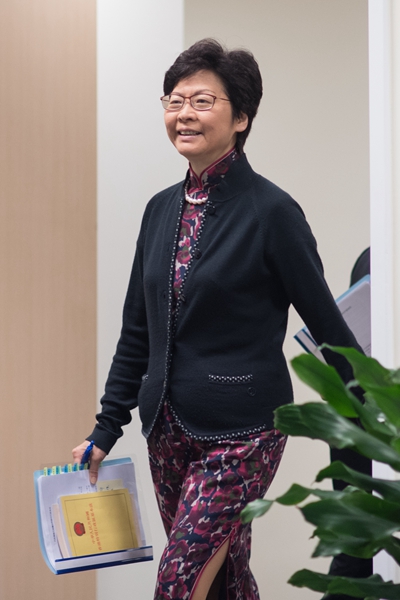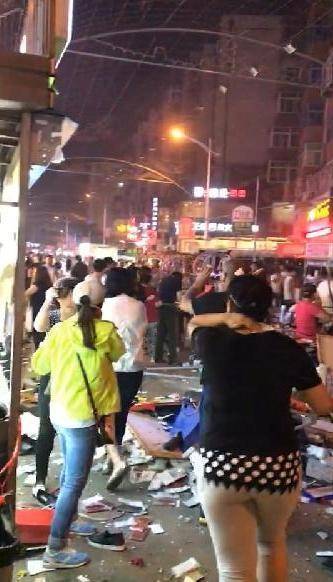Carrie Lam has high hopes for Hong Kong’s future
|
|
|
Hong Kong’s Carrie Lam Cheng Yuet-ngor will be the SAR’s first female chief executive. [Photo/China Daily] |
Hong Kong’s chief executive-designate, Carrie Lam Cheng Yuet-ngor, says she hopes the city will take advantage of China’s increasing economic power to seek new impetus for its long-term prosperity and stability.
Lam, the first female chief executive of the Hong Kong Special Administrative Region, said she is optimistic on China’s future development and that Hong Kong’s rapid growth as an international financial center and regional business hub could not have been achieved without the nation’s economic takeoff since the reform and opening-up.
According to the SAR’s government, Hong Kong’s GDP last year was HK$2.5 trillion ($320.6 billion), an 81 percent nominal increase from 1997.
“Based on my experience as a civil servant in the past more than 30 years, I believe Hong Kong’s future is very promising, thanks to our country’s rise as an emerging economic power,” Lam said.
She said Hong Kong can always find a new growth point under the context of national development.
“The Belt and Road Initiative proposed by President Xi Jinping in 2013 will provide new opportunities for us to move forward and maintain our advantage as a regional service center,” she said.
Lam said Hong Kong could use its experience in asset management and risk management to make a contribution to the nation’s major development plans, including the 13th Five-Year Plan (2016-20) and the Belt and Road Initiative.
The prosperity and stability Hong Kong has enjoyed during the past 20 years exemplify the successful implementation of the principle of one country, two systems-“Hong Kong people administering Hong Kong” with a high degree of autonomy, Lam said.
After being elected as Hong Kong’s fifth chief executive in March, Lam pledged to do her utmost to uphold the one country, two systems principle and guard Hong Kong’s core values.
She also promised to address issues concerning the city’s future development, such as applying new resources to education, tackling housing problems and introducing new financial and tax measures.
“I expect Hong Kong to become a place where residents will feel satisfactory, children will grow up happily and healthily, young people will have an arena to exert their advantages and elderly could enjoy their retirement,” she said.
Based on the latest data, Hong Kong continues to be the world’s most expensive housing market. Lam conceded that rising prices are an urgent issue for the next government and said she intends to tackle the problem with measures such as a “starter home” program.
She also plans to put more resources into the education system to cultivate more talent for sustainable development.
The city government introduced a policy of free kindergarten education this year, extending the 12 years of free education to 15 years.
Lam, who was former chief secretary of administration, said Hong Kong has fallen behind in the Internet Plus industry and that it will be the next government’s priority to catch up.
“I invited Jack Ma, the chairman of Alibaba, to my office for advice on developing Hong Kong’s internet industry at a faster pace,” she said.
To push forward the city’s economic development, government needs to become more positive and play news roles, Lam stressed.
“I felt the heavy burden on my shoulders when I received the appointment document from Premier Li Keqiang,” Lam said. “Being the chief executive of Hong Kong can be really challenging as I have to be responsible to both the central government and the city.
“But I have confidence in making Hong Kong into a vigorous special administration region in the nation.”

